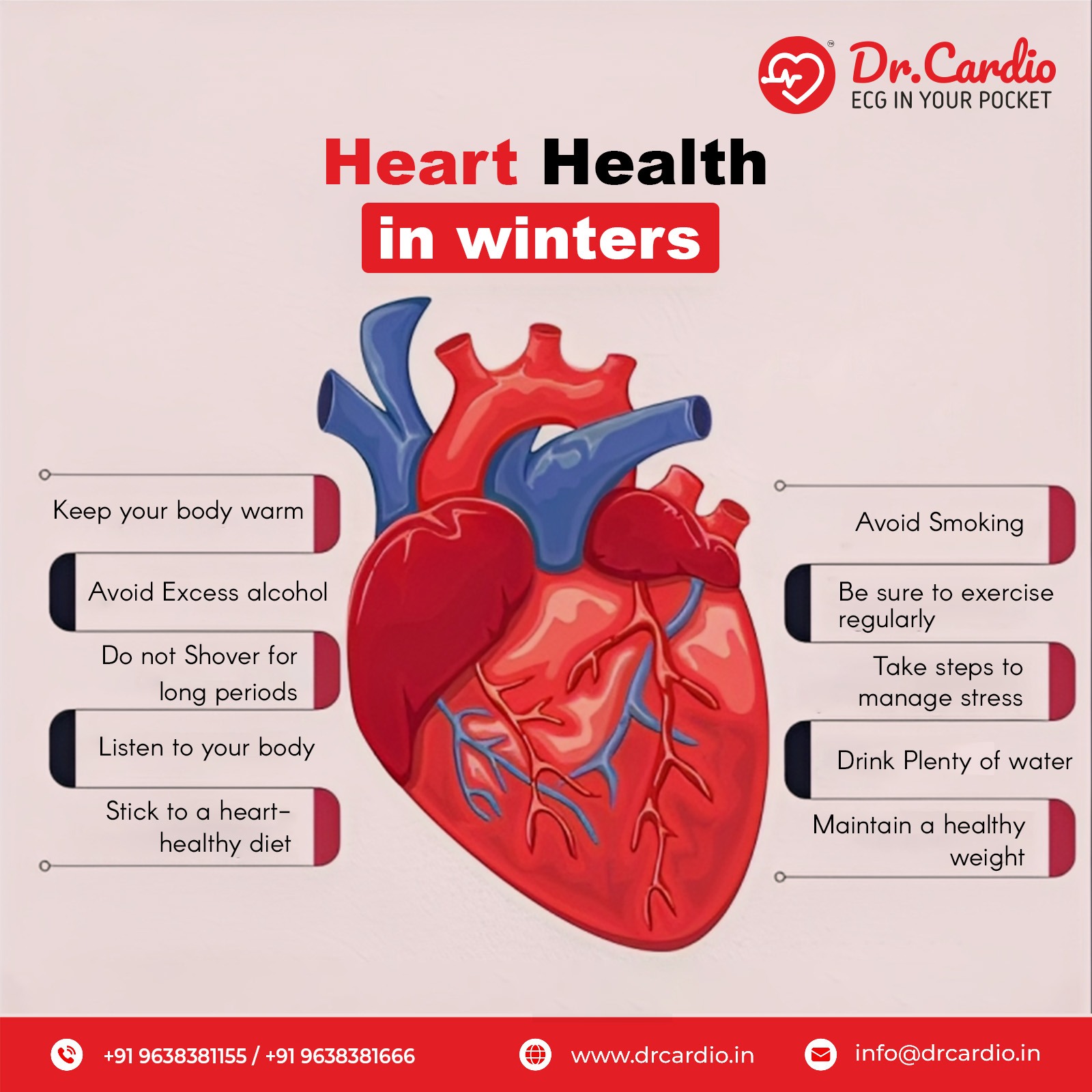As winter sets in, it is essential to pay special attention to our heart health. The cold weather can pose several challenges for our cardiovascular system, leading to an increased risk of heart attacks and other heart-related conditions. As the cold season sets in, it is important to take extra care of your heart to prevent any potential risks. In this article, we will explore effective ways to keep your body warm, avoid smoking and excess alcohol consumption, drink plenty of water, maintain a healthy diet and weight, and ultimately protect your heart during the winter season.
Heart Attack Ratios Increase in Winter:
During the winter, the risk of heart attacks tends to rise. This is primarily due to several factors, such as increased blood pressure, higher cholesterol levels, reduced physical activity, and the body’s natural response to cold weather. It is crucial to take proactive steps to support your heart health and minimize these risks. It is no secret that heart attack ratios increase during the cold season. Cold weather causes blood vessels to constrict, which can lead to an increase in blood pressure and strain on the heart. To combat these risks, it is crucial to take precautions and adopt healthy habits.

Stay Active: Engage in regular physical activity to keep your heart strong. Consider indoor exercises like walking on a treadmill, taking a fitness class, or swimming.
Eat a Heart-Healthy Diet: Consume a well-balanced diet rich in fruits, vegetables, whole grains, lean proteins, and healthy fats. Stay hydrated, as dehydration can strain your heart. Even in colder weather, drink an adequate amount of water.
Maintain a Healthy Weight: Monitor your weight and aim to maintain a healthy BMI (Body Mass Index). Avoid crash diets and focus on making sustainable, long-term dietary changes.
Manage Stress: Practice stress-reducing techniques such as meditation, deep breathing exercises, yoga, or tai chi. Engage in activities you enjoy to help alleviate stress and promote mental well-being.
Keep Warm: Layer clothing to stay warm in cold weather. Hypothermia and frostbite can stress the cardiovascular system. Ensure your home is adequately heated, especially at night, to maintain a comfortable temperature.
Monitor Blood Pressure: Regularly check your blood pressure, especially if you have hypertension. Follow your healthcare provider’s recommendations for managing your blood pressure.
Get Enough Sleep: Prioritize quality sleep, aiming for 7-9 hours per night. Maintain a consistent sleep schedule and create a relaxing bedtime routine.
Quit Smoking: If you smoke, consider quitting. Smoking is a significant risk factor for heart disease. Seek support from friends, family, or smoking cessation programs to help you quit.
Limit Alcohol Intake: If you drink alcohol, do so in moderation. Limiting alcohol consumption is beneficial for heart health. Stay Informed about Seasonal Illnesses.
Monitoring Your Heart Health
Regular monitoring of your heart health is vital, especially during the cold season. Dr. Cardio provides a portable ECG machine that is pocket-friendly, easy to use, and generates accurate instant reports. This device allows you to monitor your heart’s electrical activity and send the results to your doctor promptly, if needed. With Dr. Cardio’s portable ECG machine, you can take control of your heart health and detect any potential issues in a timely manner. As the cold season arrives, it’s important to prioritize your heart health. By following these tips, monitoring your heart health with Dr. Cardio’s portable ECG machine, and adopting a heart-healthy diet, you can safeguard your heart and reduce the risk of cardiovascular issues during the cold season. Remember, your heart deserves the utmost care and attention, no matter the time of year.
